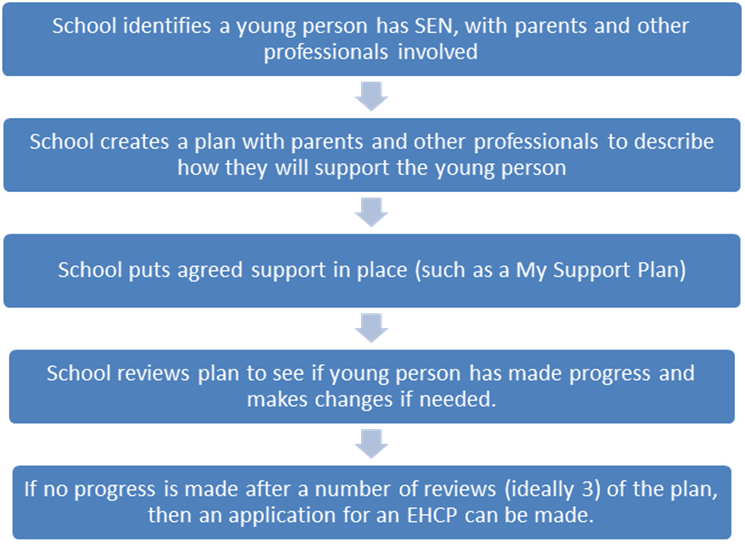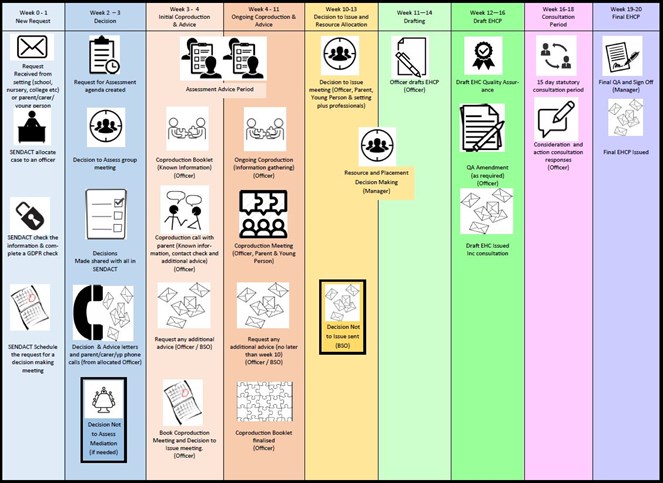The Decision to Assess group is made up of a range of professionals from schools, educational psychology, health, social care and SENDACT. They look at the information that has been submitted for a child or young person and decide whether an EHC assessment needs to be carried out or whether the school should continue to provide support through the graduated approach.
When deciding whether or not to carry out an EHC assessment, the Decision to Assess group will consider two things (this is called the Legal Test):
- Whether the information provided shows that the child or young person has or may have special educational needs
- Whether the information provided shows that it may be necessary for additional support to be provided for the child or young person above what would be normally available in school.
They will also consider the following:
- Has the educational setting identified the young person’s needs and then provided support which is relevant to these needs and which has a clear outcome?
- Have learning levels and rates of progress been provided?
- Have they included relevant reports from other professionals?
If they agree that carry out an EHC assessment they will say which professionals need to carry out an assessment of the child or young person, this is usually an Educational Psychologist but can also include Speech and Language Therapists (SALT) or other health colleagues. They can also ask Social Care to carry out an assessment if it is thought that they need to.
This assessment will look at all of the young persons additional needs and what support they need in order to make progress, these assessments can sometimes identify specific learning needs if these have not been identified yet.
If it is agreed to carry out an EHC needs assessment, this does not guarantee that an EHCP will be issued. In some cases, an EHC assessment is agreed but the assessment shows that the child or young person does not need the additional support (and funding) that an EHCP brings. It may be that the assessment shows that the child or young person can be supported by a school or setting without additional funding.
This is an agreement to assess the child or young person and if this reveals that they do need additional support from and EHCP, then a plan will be issued.
If they feel that an assessment is not to be carried out at this time then they will clearly state the reasons why in a letter they will send to you.
SENDACT will let you know what their decision is within 6 weeks of the application being sent in.
How do I get to know the outcome of Decision to Assess group?
Everything that is discussed at the Decision to Assess group is written down (called minutes) and the individual decisions are sent out around a week after the group has taken place stating whether the Decision to Assess group has agreed to the request for an EHC assessment or not. The decision will always be sent out in writing to you however we are always happy to discuss the decision with you over the phone.


